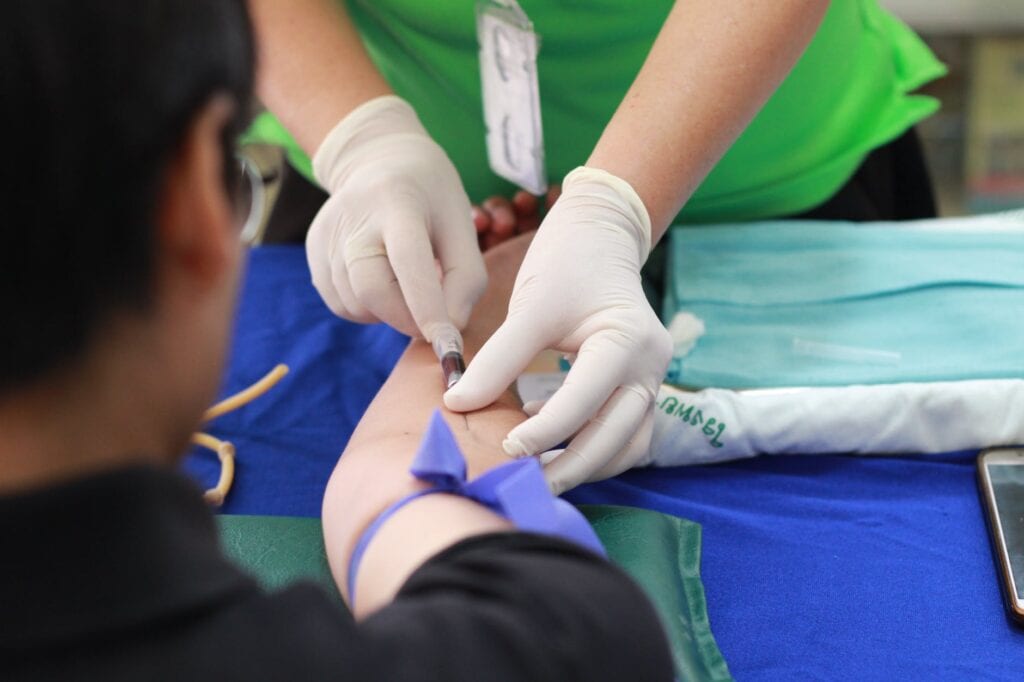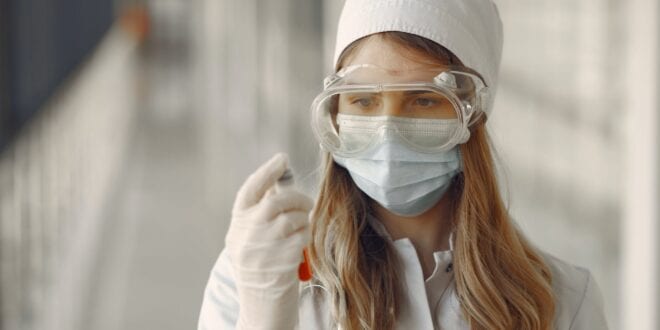Lockdown has upended virtually everyone’s life, and while it feels like it’s just the medical profession going out to work, budding doctors and nurses have to stay indoors with the rest of us as they swat up for their future careers.
They may well be counting their blessings, but there are other challenges ahead, particularly if they’re tackling the USMLE step 1, the first part of the United States Medical Licensing Examination. It’s one of the biggest challenges students have to face when entering the medical profession in America.
The sheer volume of information medical students have to ingest and memorize, applying real-life clinical scenarios to test all relevant basic science concepts, according to Lecturio, who provide study at home materials for medical students who preparing for the USMLE Step 1 exams.

And as they’re embarking on that journey, there are a few hard truths they’re all too aware of, not that they’ll admit it. Here are some of the secrets that every medical student holds.
- There’s a lot to know about in medicine. There are too many words, jargon, body parts, pathogens, and viruses. And they have to all be memorized, even the ones with seven syllables.
- Yes, rectal examinations are funny, but the unwritten rule is ye shall never laugh out loud about them.It’s a competitive path to land the top placements, and most students will double-cross their classmates to score them while still being able to sleep soundly at night.
- It’s so hard for students to smile on ward rounds because following a doctor around doing routine checks on patients is hard not to expose for the bore it is.
- Here’s a disturbing fact, anatomy lessons can give students an appetite. Anything tastes good with some fava beans and a nice chianti.
- At some point, medical students will get medical students’ disease, or second-year syndrome, the condition where students believe they are getting the disease they are studying.
- It’s annoying, but if you befriend a medical student, they can’t help themselves, they’ll most likely try and diagnose you, even if you didn’t ask for their advice.

- Unfortunately, irritating behavior doesn’t end when students graduate; once they reach the consultant level, the egos are uncontrollable.
- You should also know that consultants have a whole lot of power, and they aren’t afraid to use it or abuse it.
- What’s more, consultants are pretty much unaware of your existence if you’re a medical student under them.
- All medical students are bootlickers because they know their allegiance determines pretty much everything.
- All medical students will have a minor cardiac arrest if they are pounced on with a question by a consultant, and they don’t know the answer.
- And there’s every reason to panic as a small humiliation ritual follows said non-answer. Studying is expected to be part of a student’s life from the moment they awake to the moment they sleep, on their commutes, in the bath – pretty much anywhere.
- Ecstasy could not rival the feeling for students who do answer something correctly.
- There’s a palpable feeling of injustice when medical students have to be on call or do night shifts without getting paid.

- There’s no worse time for students than exam time. The struggle is real, and breakdowns are prolific.
- Unfortunately, medical students do make jokes about their patients all the time. But see it from their side, if they didn’t laugh, they’d cry.
- The ubiquity of sickness and death in their world means life tends to be regularly tinged with cynicism.
- Long periods of medical school, then long hours in the hospital and clinics mean non-medic friends are moving on in their personal lives much quicker than medical students, and this can bear an emotional weight.
- There’s usually a point at which the pressure gets too much for medical students, and they consider dropping out.
- When you think of all the people you went to high school with and look at their social media, in most cases you will see them in happy relationships, getting married, having kids, while medical students have to put in another 5 years into studying.

- People have the perception that medical students are geniuses, which makes you feel inadequate if you yourself don’t feel like that, they also think that you already know everything there is to know about medicine after one year of studying medicine.
- Student loans take on a life of their own, even they have their own student loans, or at least that’s what it feels like since they just keep getting bigger and bigger.
- Medical students are chronically tired, they don’t know what it means to get a good night’s right. From all the studying, night shifts, exams it’s incredibly hard to do all the things you need for a good grade or to stand out in your class.
- It’s very important not to answer a question with “I don’t know” since that will lead to panic in the patient or a bad grade at medical school. It’s like medical students have been conditioned to forget that phrase.
- Your old friends will find it hard to understand why you can’t hang out with them and how much emotional and physical commitment medical school takes from you.

- Exams can be set at any time of the week, so weekends might not be the time for catching up with family and friends anymore. You might need to change your whole schedule, Wednesday and Thursdays could be your new Saturday and Sunday.
- Ask most of them why they decided to pursue medicine, don’t be surprised if they can’t remember and start questioning it themselves.
- If you see a medical student struggling with the last point, you could always remind them that they’ll be saving lives.
- It won’t be surprised if that pressure is building in the current climate while studying from home. However, a program like Lecturio could be a useful aid, as it gives medical students quality content to work through in their own time, especially when studying for the USMLE1 exam.
You should try and give your medical student friends some space and try and adapt to their schedule, they will appreciate it a lot and they definitely need friends at a time like that.
 Imagup General Magazine 2024
Imagup General Magazine 2024



